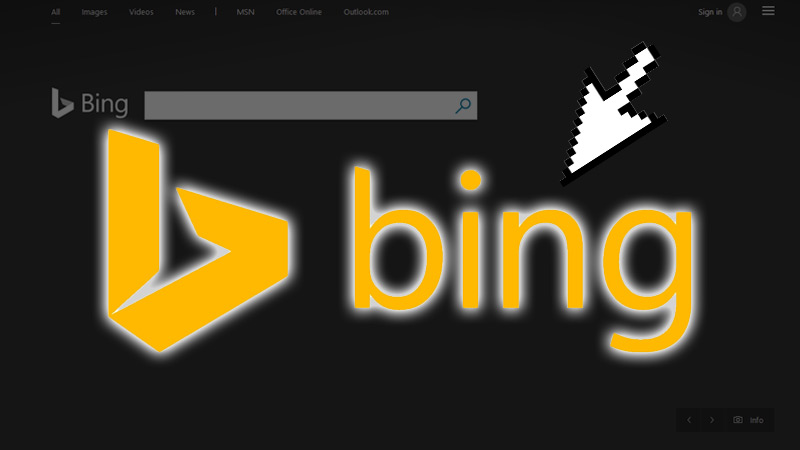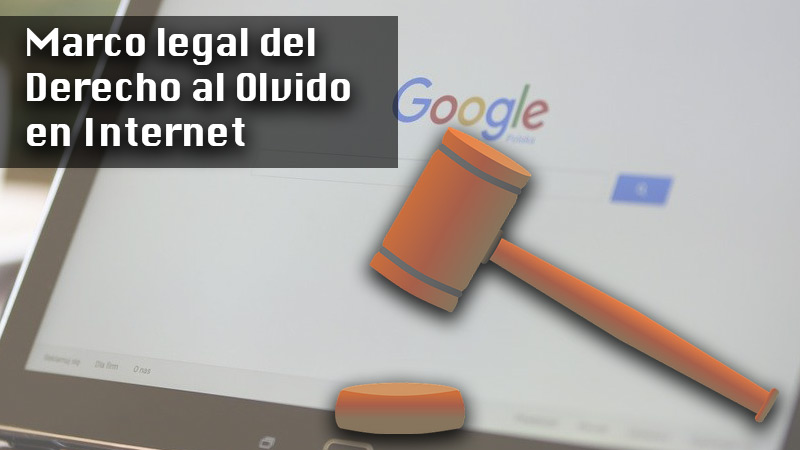
Index:
UPDATED ✅ Do you need to know more about the right to be forgotten and how you can request it? ⭐ ENTER HERE ⭐ and discover everything about it ✅ EASY and FAST ✅
In general, the “Right to be forgotten” is a term that is closely related to the protection of personal data, honor, image and privacy of a user on the Internet. There are certain scenarios under which this legal term can be applied, so we will talk to you in depth about the subject.
For the year 2014, specifically on May 13, the CJEU (Court of Justice of the European Union) published a sentence in which the obligation on the part of Internet search engines to comply with the regulations corresponding to the personal data protection of the users.
In this way, through the Right to be Forgotten on the Internet, it is possible to delete all types of information on the Internet. This concept applies when performing Requests to block, delete or de-index non-relevant information that becomes irrelevant or obsolete over time. Know what it is for and its benefits!
What is the right to be forgotten on the Internet and what is it for users?

The Internet has allowed the establishment of a huge database full of a lot of information about all the users who live there, so it is not surprising that personal data, location, photographs and much more about people are obtained.
This has caused a series of problems that forced the legal framework to establish regulations for the protection of users who are part of the great Internet network. From there, the term “Right to be forgotten on the Internet” arises.
According to Spanish Data Protection Agency (AEPD), this is a right that any person has to request the deletion of all their personal data in Internet search engines. Likewise, the General Data Protection Regulation (GDPR) expands the scope of this term much further.
In this sense, they explain that the applicant can demand their right in the following cases:
- When the data you wish to delete is not necessary for the purpose for which it was collected.
- When the person withdraws their consent to the processing of their data.
- When the user opposes the use and processing of their data.
- When the data collected on the Internet is used for illicit purposes.
- In the case of data of minors under 16 years of age and that have been collected without the authorization of the holder of parental authority or guardianship of the child.
- When it is necessary to delete data due to a legal obligation established by Community law or by the Member States.
In any of these cases, the service provider that fulfills the function of data processor has the legal obligation to assert that right. In case you want to know more about the subject, read the GDPR article 17 corresponding to the date of April 27, 2016.
What are the main benefits of using this right to be forgotten?

The use of the Internet can be a double-edged tool for the user, since all kinds of information can be found there. In some cases, some of this information can directly affect people, so it is essential to know the legal tools available to a citizen to assert their rights.
One of the most talked about is the right to be forgotten on the Internet and its main benefit is that the user You have the right to demand that your personal data disappear of all search engines when the information is not relevant or may cause some kind of damage.
There are many laws on the matter., which can be used to proceed to request that certain information completely disappear from the network. Consequently, this is the best way to request that some content be unlinked from Internet searches. In addition to that, it is important to note that this procedure must be carried out with the advice of an expert on the subject. He will be able to guide you to request your rights through the judicial process.
In which portals can I demand the right to be forgotten if I notice that they are defaming me?
A very frequent question on this subject is: Where is it possible to demand the right to be forgotten in cases in which a user’s information is used for illicit purposes or defamation? The answer is simpler than it seems.
On the Internet, there are many search engines, blogs and other websites where this procedure can be managed. The most recognized are:
- Yahoo!
- bing
- Milegadodigital.com
- Debitoor.es
When it comes to Google, you should know that they have a whole team that is responsible for the management and treatment of these cases. For this reason, it is one of the most suitable places to manage the right to be forgotten on the Internet. Each case is evaluated individually and makes its team of experts in the area available to the user or company.
Learn to demand your right to be forgotten on any platform step by step
As we indicated previously, the right to be forgotten on the Internet, it can be demanded by any user or company that you consider that the information provided through the search engines may affect you in one way or another.
In case you don’t know how to manage it, We explain step by step how to do it on different platforms:
In Google

Google has at its disposal a complete group of experts dedicated solely to studying the cases referring to the right to be forgotten. Before requesting the help of Google, you have to know that you will be asked for detailed information about your case, in order to be studied in depth. Consequently, the steps to do so are:
- Enter the link: https://www.google.com/webmasters/tools/legal-removal-request?complaint_type=rtbf&visit_id=1-636515271663747244-1730995169&hl=es&rd=1&pli=1&authuser=1%20
- When you log in, you will be prompted to return to sign in to your Google Search Console account. Enter your data and continue.
- Then you will be shown a form to fill out fully called “Withdrawal under EU privacy law”. Remember to provide as much information as possible.
- At the bottom of the form, click “Send”.
- Wait for the answer to your case and that’s it.
on Bing

bing is the web browser developed by Microsoft and with your help, you can assert your right to be forgotten on the Internet. In the first place, regarding this topic, they explain that if you want to request that some content that you have published on a certain website be removed from the list, the most effective way is to communicate directly with that website and inform them about your case.
However, if you have exhausted that option or want to do it directly with the help of Bing, you will have to fill out a form to provide much more detailed information about the case. So, the steps to follow to assert your right to be forgotten are:
- Enter the following link: https://www.bing.com/webmaster/tools/eu-privacy-request.
- Fill the form.
- At the end of the form, click “Send”.
Finally, you have to wait for your request to be processed and contact you.
In Yahoo!

Yahoo! It is another of the most used web search engines on the Internet. In case you want to manage the requirement of the right to be forgotten through them, you have to know that the procedure is the same as in the case of Google and Bing. That way, you need to fill out the form and wait for a response.
Specifically the steps to follow are:
- Enter the link: https://io.help.yahoo.com/contact/index?y=PROD_SRCH&token=w5FCchB1dWGbc2RE0kcjij0u65u86GoeqUkmqtTbcuO%2BLU%2FUQgc3BzwNZtXp6XEXn5YwJ6Wu6A9MCYnw7SzQy5BySKiGUpoj0xug9Sr7JfZdSQjOyA5v2Of2mZTMotlsehDS1xQqu1g%3D&locale=es_ES&page=contactform&selectedChannel=email-icon&isVip=false&guccounter=1
- Fill in all the fields of the form.
- select in “Create request” and wait for your answer.
in a blog
It is not always necessary to go to search engines to assert the right to be forgotten on the Internet. In cases where a blog contains information that in your opinion should be removed for the reasons explained throughout this post, it is a good option to directly request the removal of that data from them.
Contact your team and proceed to present your case. If they ignore your request, you can move on to asking the search engines for help.
Legal framework of the right to be forgotten, what does the Law say about platforms that do not respect it?

When it comes to the legal framework that contemplates the right to be forgotten on the InternetYou should know that there are different laws on the subject. One of the first to speak on the subject was the Judgment C-132/12 of May 13, 2014 of the Court of Justice of the European Union.
Later, in the tenth title of the new LOPDGDD It was when the right to be forgotten really began to be regulated. Regarding this topic, two variants are contemplated:
- Right to be forgotten in Internet searches (art 93): It is stated that everyone has the right to have Internet search engines remove any published link that contains information relating to a person.
- Right to be forgotten in social network services (art 94): It is stated that every person has the right to have their personal data provided by themselves or by third parties in social networks and equivalent services deleted.
What happens if it is not respected?
If the person in charge of the service refuses to delete the personal data of a user, this must be communicated directly to the Spanish Data Protection Agency (AEPD). They are responsible in Spain for asserting these rights.
It should be noted that you can only go to this entity once the person has requested the fulfillment of their rights to the service provider and he has not responded within a reasonable time or has refused. If not, the AEPD will not consider the request.
Is there really such a thing as the right to be forgotten on the Internet?
On many occasions, it has been discussed whether the right to be forgotten really exists on the Internet. The answer is yes, but it depends on each case. Since the sentence by the Court of Justice of the European Union In 2014, all European citizens have the right to suppress some information that may affect them.
However, there are exceptions depending on each scenario. For example, Google is not required to remove any personal information from a user who has requested deletion for searches conducted outside the European Union.
Therefore, it is very important to read the terms and conditions before entering personal data on websites or on a social network. Only in this way, it is possible to ensure maximum protection.
In the event that it is necessary to make a data deletion request, remember that there are blogs that can help you or you can do it yourselffilling out the form provided by search engines (Google, Bing, Yahoo!), to manage the right to be forgotten on the Internet.
Privacy